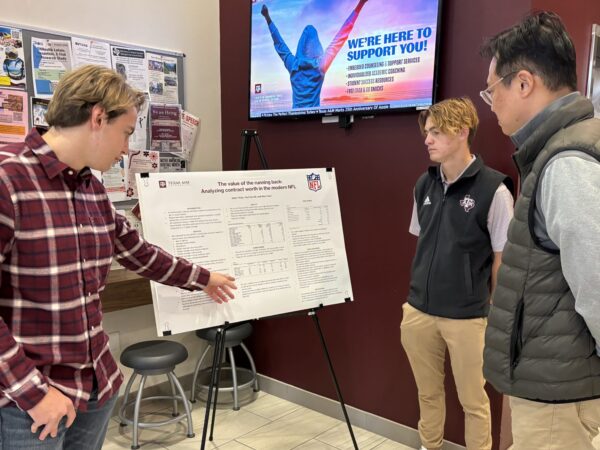Testosterone Research Brings New Hope For Cancer Patients
Loss of body mass is responsible for approximately 20 percent of cancer deaths. New research targeted this loss, known as cachexia, using the natural hormone testosterone and found increased quality of life for cancer patients.
Dr. Melinda Sheffield-Moore, professor and head of the Department of Health and Kinesiology, and researchers at University of Texas Medical Branch found that testosterone can maintain or improve lean body mass in cancer patients.
These findings are significant for cancer patients suffering from the loss of fat, skeletal muscle and muscle function caused by cancer. This loss can reduce patients eligibility to undergo treatments like radiation and chemotherapy.
This National Cancer Institute grant-funded research is significant, as there are currently no established therapies targeting this loss of body. Dr. Sheffield-Moore and her team wanted to show that the naturally-occurring hormone testosterone could increase quality of life.
“We hoped to demonstrate these patients would go from not feeling well enough to even get out of bed to at least being able to have some basic quality of life that allows them to take care of themselves and receive therapy,” Dr. Sheffield-Moore said.
Dr. Sheffield-Moore said doctors sought her expertise in nutrition and metabolism when patients were losing tremendous amounts of weight from cancer cachexia. She said that previous nutrition-focused treatment failed to combat this severe loss of body, which led her team to investigate the hormone testosterone.
“We already know that testosterone builds skeletal muscle in healthy individuals, so we tried using it in a population at a high risk of muscle loss, so these patients could maintain their strength and performance status to be able to receive standard cancer therapies.” Dr. Sheffield-Moore said.
Over the course of five years, researchers studied groups of patients with advanced stage cancers undergoing chemotherapy and radiation. For seven weeks groups of patients received hormone testosterone and placebo injections.
Patients receiving testosterone either maintained total body mass or increased lean body mass. Sustaining body mass is important considering most patients experience a 20 percent decrease in mass or more depending upon the type of cancer. This loss can leave them bedridden and incapable of simple, daily tasks.
“Patients in the testosterone group demonstrated enhanced physical activity,” Dr. Sheffield-Moore said. “They felt well enough to get up and take care of some of their basic activities of daily living, like cooking, cleaning and bathing themselves.”
Dr. Sheffield-Moore hopes this research will help advanced-stage cancer patients increase quality of life and maintain eligibility to receive therapy.
To read more about Dr. Sheffield-Moore and UTMB’s research visit tx.ag/cachexia.
About the Writer
Heather is responsible for news coverage in the Department of Health and Kinesiology, as well as the Department of Educational Administration and Human Resource Development.
Articles by HeatherFor media inquiries, contact our Media Relations Coordinator, Ashley Green













